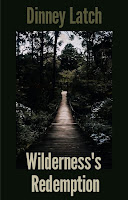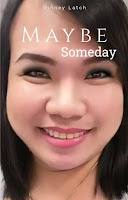The Atheist - Chapter 8: Unraveling Beliefs
Emily sat across from Hartley in a quiet corner of the campus library, the pages of their respective books bathed in the soft glow of a reading lamp.
Their conversations had transitioned from formal debates to these intimate exchanges, where they explored the intricacies of their beliefs and the experiences that had shaped them.
As Emily listened to Hartley discuss his thoughts on atheism, she noticed a somberness in his eyes, a depth of emotion that she hadn't seen before.
"You know," he began, his voice tinged with a touch of vulnerability, "my atheism wasn't born out of mere skepticism. There's a deeper story behind it."
Intrigued, Emily leaned forward, offering her full attention. "Tell me about it."
Hartley took a deep breath before opening up. He recounted the story of a close friend he had lost during his teenage years, a friend with whom he had shared dreams of changing the world.
The loss had left him questioning the fairness of life and the existence of a higher power that would allow such pain to occur.
"My friend's death shattered my belief in a benevolent deity," Hartley said, his voice steady but heavy with emotion. "I couldn't reconcile the idea of an all-powerful God with the reality of suffering."
Emily's heart ached as she listened to Hartley's story. It was a narrative that echoed her own journey of questioning, the trauma of loss resonating deeply within her.
She realized that his atheistic beliefs weren't simply the result of academic pursuits; they were a shield against the pain of disappointment and heartache.
"I'm so sorry for your loss," Emily said softly, reaching out to place her hand on his. "It's clear that your beliefs were shaped by a profound personal experience."
Hartley nodded, his gaze meeting hers. "It's been a long journey, one filled with introspection and exploration. And in our discussions, I've come to see the value of your faith, how it provides solace and purpose even in the face of uncertainty."
As the weight of their shared vulnerabilities hung in the air, Emily and Hartley realized that their beliefs were not isolated ideas; they were deeply rooted in their individual histories and emotions.
Their conversations had unveiled the layers beneath their convictions, exposing the raw humanity that connected them despite their differences.
As Emily listened to Hartley discuss his thoughts on atheism, she noticed a somberness in his eyes, a depth of emotion that she hadn't seen before.
"You know," he began, his voice tinged with a touch of vulnerability, "my atheism wasn't born out of mere skepticism. There's a deeper story behind it."
Intrigued, Emily leaned forward, offering her full attention. "Tell me about it."
Hartley took a deep breath before opening up. He recounted the story of a close friend he had lost during his teenage years, a friend with whom he had shared dreams of changing the world.
The loss had left him questioning the fairness of life and the existence of a higher power that would allow such pain to occur.
"My friend's death shattered my belief in a benevolent deity," Hartley said, his voice steady but heavy with emotion. "I couldn't reconcile the idea of an all-powerful God with the reality of suffering."
Emily's heart ached as she listened to Hartley's story. It was a narrative that echoed her own journey of questioning, the trauma of loss resonating deeply within her.
She realized that his atheistic beliefs weren't simply the result of academic pursuits; they were a shield against the pain of disappointment and heartache.
"I'm so sorry for your loss," Emily said softly, reaching out to place her hand on his. "It's clear that your beliefs were shaped by a profound personal experience."
Hartley nodded, his gaze meeting hers. "It's been a long journey, one filled with introspection and exploration. And in our discussions, I've come to see the value of your faith, how it provides solace and purpose even in the face of uncertainty."
As the weight of their shared vulnerabilities hung in the air, Emily and Hartley realized that their beliefs were not isolated ideas; they were deeply rooted in their individual histories and emotions.
Their conversations had unveiled the layers beneath their convictions, exposing the raw humanity that connected them despite their differences.






Comments
Post a Comment